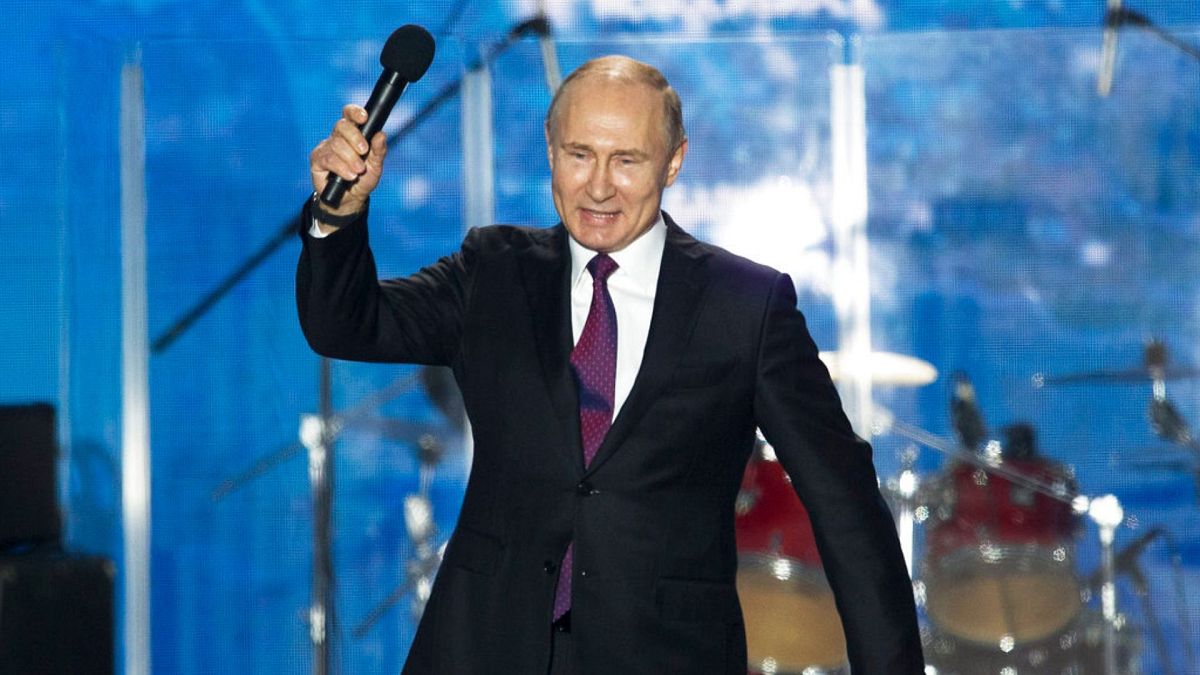The revived contest, planned to take place in Moscow later this year, is Russia’s way of directly challenging Eurovision while promoting “traditional values.”
Following Russia’s ban from competing in Eurovision in 2022 after the country’s invasion of Ukraine, President Vladimir Putin has ordered the return of Intervision, a Soviet-era singing competition that last took place more than 40 years ago.
On Monday 3 February, the Russian leader signed a decree directing officials to bring back the Intervision Song Contest in Moscow this year, with the goal of “developing international cultural and humanitarian cooperation.”
While Eurovision has become a glitzy, global spectacle celebrating diversity and LGBTQ+ representation – last year’s winner, Nemo from Switzerland, was the first non-binary contestant to take home the trophy – Russia’s rebooted Intervision will strike a much different, sober tone.
Do not expect any bearded drag queens, outrageous wigs, sequinned costumes or pride flags. Plans for the rebooted contest stress a commitment to “traditional universal, spiritual, and family values,” making it clear that this is Russia’s ideological counter-programming to the flamboyant pop extravaganza that is Eurovision.
Russian senator, Liliya Gumerova, told state media that Intervision would “promote real music” and reject “fake values that are alien to any normal person.”
A brief history of the Intervision Song Contest
Launched under the former Soviet leader Leonid Brezhnev, the Intervision Song Contest took place in Czechoslovakia (1965 to 1968) and later in Sopot, Poland (1977 to 1980), replacing the Sopot International Song Festival during that period.
The format was similar to Eurovision: Eastern Bloc countries connected via the Intervision television network could each send a performer, where a jury chose the winner after watching the performances.
Despite its clear political undertones, the contest wasn’t completely isolated from the West. European nations like the Netherlands and Spain occasionally sent entries, and in a surprising twist, Finland – a country that maintained neutrality during the Cold War – won the final Intervision contest in 1980.
“It was live, and it was in a wonderful outdoor theatre. And it was very big, I think 15,000 people or maybe even more,” recalls Marion Rung, the Finnish singer who won that final Intervision Song Contest.
“It looked very much like Eurovision. It was a fantastic orchestra, and a fantastic conductor,” she told Euronews from her home in Helsinki.
However, the contest was cancelled in 1981 due to political turmoil, particularly with the rise of the Solidarity movement (Solidarność), an independent trade union that opposed the ruling communist government in Poland, as well as growing unrest in the Warsaw Pact countries.
But now, over 40 years later, Russia is determined to bring it back.
Who will participate in the revived Intervision Song Contest?
The Kremlin claims that “almost 20 countries” are prepared to participate in Intervision, including all members of the BRICS and CIS blocs. Among them are China, India, and Brazil – nations that have not participated in the Western sanctions.
North Korea, whose soldiers have come to Putin’s aid in the war in Ukraine, already takes part in the Own Asiavision Song Contest, so it’s unclear whether they would take part.
Putin has attempted to resurrect Intervision before. In 2014, as Russian officials decried what they saw as Eurovision’s “moral decay” following Austrian drag queen Conchita Wurst’s victory, Moscow announced plans to relaunch the contest in Sochi. But the project never materialised.
The resurrected competition is now set to take place this autumn in Moscow.

